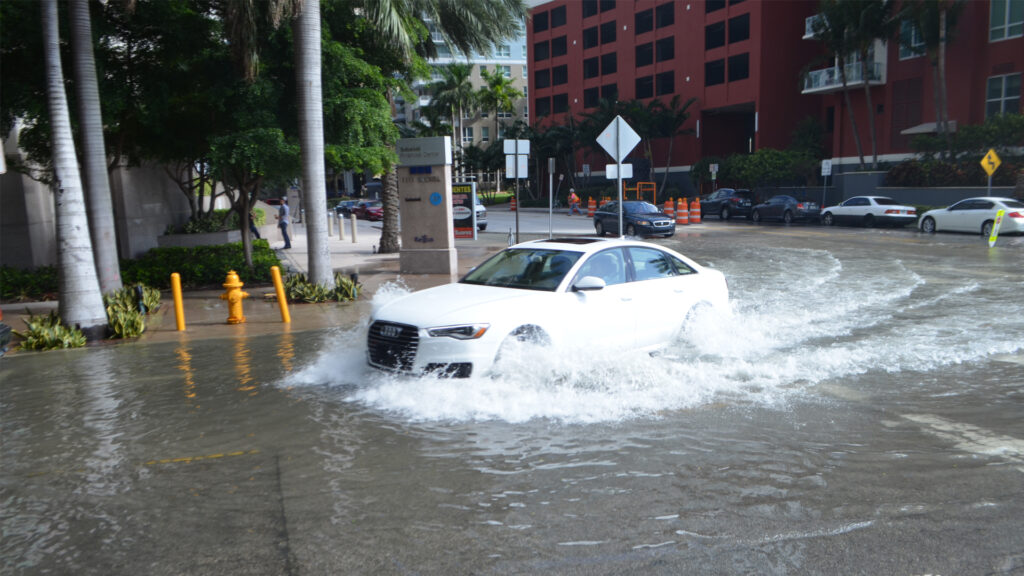By the Miami Herald Editorial Board
Floridians clearly like rolling the dice. We live on a peninsula that sticks out directly into the path of hurricanes, but we keep building on the coasts like crazy. We’re the lightning capital of the U.S., yet we also have more golf courses than pretty much any other state. We drive on Interstate 95, for heaven’s sake.
So it can’t be any surprise that we continue to brush off the idea that sea rise and flooding might actually affect us — and the housing market — sometime soon. You want real risk, we say? Try crossing the street in Miami.
But, of course, refusing to face the growing climate threat isn’t the smartest strategy. A new study published recently in the journal Nature Communications drives that home. It suggests we may see a reshaping of the state’s population based on which spots will require a retreat from rising waters and which spots — the ones on high ground — will be able to handle more people and housing.
Around the corner
And some of those effects, according to the Miami Herald story on the topic, could start happening quite soon: Frequently flooded locations could see resident flight as early as 2028 in Miami-Dade County. In Broward, it could start happening in 2032.

That’s not decades away. It’s pretty much tomorrow.
As the story points out, the bazillion-dollar question is what will happen to Florida’s real estate market. In Miami, as is the long tradition in Florida, growth — particularly real estate growth — is a basic underpinning of our economic expectations. But under this re-shaping, the places where growth could occur might see a large shift. Would coastal and waterfront properties stop being so desirable? What about places that are further west but still on low-lying ground? That could have profound effects. Being able to predict where property values might drop, or even just stop rising, is key in a place where so much of the economy relies on the real estate boom.
One somewhat reassuring note: Both Miami-Dade and Broward are predicted to continuing growing overall through this century, according to the study, which is based on current flooding models as projected into the future. That’s great — as long as you’re not the one left holding the property that drops in value when you’ve been banking on it going up.
This is only one study. Plus, it doesn’t factor in whether anything significant is done to slow climate change or sea rise. Local governments in South Florida have been elevating roads, installing pumps and requiring new construction to be elevated.
Individual choice
How much risk or change homeowners are willing to take on is another unknown. Some people may be OK with flooded driveways or roads periodically as long they get to stay in the beachfront home of their dreams. It’s not just governments that will have to adapt. It’ll also be individuals.
We’re already doing that. In research published in the journal Climate Risk Management and cited in the Miami Herald story, more than a third of respondents said they’d missed school or work because of flooding. And yet most of them still planned to remain in Miami-Dade or a county nearby.
Are people really willing to take on more risk? A Redfin study said would-be homebuyers who had access to flood risk scores generally chose to bid on homes with lower risk. At the same time, in Florida, we rebuild along the coastline that Hurricane Ian walloped in 2022.
Out of all of this, a complicated picture emerges. We are adapting to the risks we’re facing — so far. But if there’s a tipping point when property values in certain places actually start heading south, will that change?
It’s a conversation we need to have, in Miami-Dade, in Florida and in the country.
This opinion piece was originally published by the Miami Herald, which is a media partner of The Invading Sea. If you are interested in submitting an opinion piece to The Invading Sea, email Editor Nathan Crabbe at ncrabbe@fau.edu. Sign up for The Invading Sea newsletter by visiting here.



